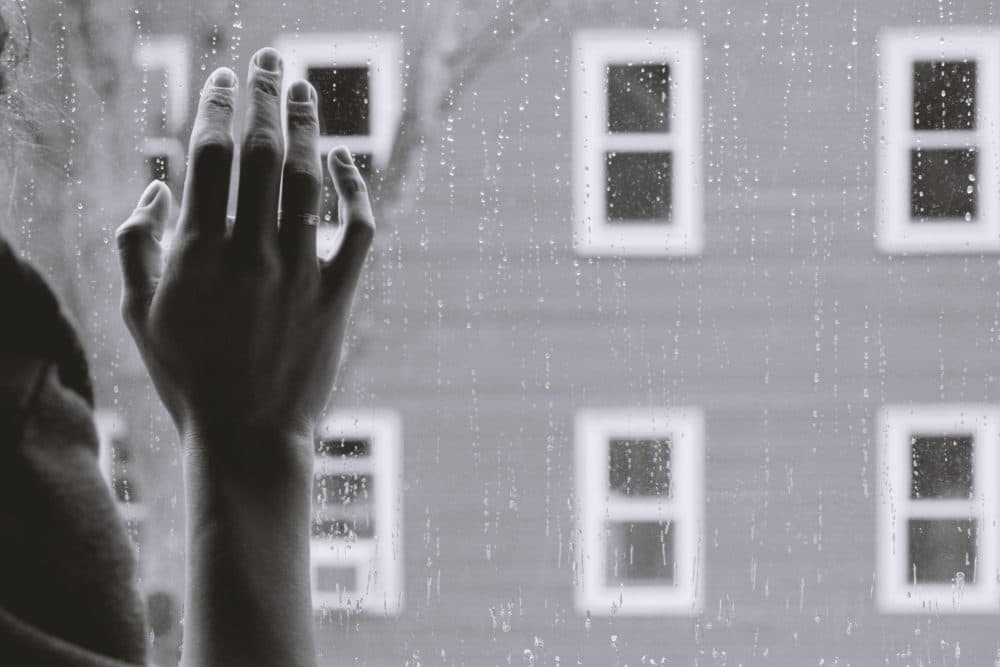Advertisement
Commentary
This Is The Problem With Casually Using The Word 'Depressed'
Resume
Twenty years ago, over the course of a few days in September, my life went dim — as if a pane of tinted glass had been lowered between me and the world. My thoughts and movements were sluggish, and my drive to do much of anything, even things I normally enjoyed, had vaporized. I was anxious and oversensitive in social interactions and even the smallest decisions (what to eat for lunch, what to wear) filled me with indescribable dread.
Worst of all, I had no idea why life suddenly felt so joyless and oppressive. I was in a job I loved, and a blossoming relationship with the man who would become my husband. I had an active social life and career aspirations. What did I have to feel unhappy about?
I soon found out, with the help of medical professionals and the counsel of a couple of friends who’d been in my shoes, that the source of my problem wasn’t some deep-seated trauma I’d repressed or a problem I wasn’t addressing. It was major depression. Within a few weeks of treatment on Prozac, I felt like myself again.
I’ve had to contend with other bouts of depression over the years, some much more severe than that initial one in my 20s. There were times when the episodes were so crippling and deep I was almost unable to function. Without the medications that now keep me on an even keel, I wouldn’t be able to write this. I might not be here at all.
Nearly 7 percent of adults in the U.S. live with major depression. It’s a disease that ravages families and ruins lives — and sometimes ends them. But it’s still deeply misunderstood by those whose lives have never been touched by it. So, this May — Mental Health Awareness Month — in the interest of combating and correcting that misunderstanding, I have a plea: Please don’t say you’re depressed when you’re not.
When you’re really sad, you might not feel like getting out of bed. When you’re clinically depressed, you can’t.
There is a vast difference between being sad or disappointed or lonely or frustrated or in a rut and suffering from the mental illness that I and millions of others live with. This isn’t to say that these emotions can’t be excruciatingly painful and debilitating; I’ve experienced all of them. I’ve suffered romantic heartbreak, had a child diagnosed with life-threatening illness, dealt with huge professional disappointments, and navigated dysfunctional family dynamics. There have been times when these “normal problems,” as my psychiatrist calls them, have been so intense and all-consuming that they flirt with the edges of what clinical, major depression feels like.
Indeed, in some situations, extremely difficult life events — bereavement, for example — may ultimately lead to clinical depression. In my own case, before I was on the right cocktail of medications, there were times when “normal problems” or stresses in my life triggered episodes of major depression. But for the overwhelming majority of people, this doesn’t happen. When you’re really sad, you might not feel like getting out of bed. When you’re clinically depressed, you can’t.
The problem with people casually using the term “depressed,” as a catch-all for unhappiness is that it perpetuates misunderstanding and stigma around major depression — which too many still view as a result of weakness, laziness or a character flaw. They believe that the sufferer should be able to hoist themselves up out of depression through hard work, soul-searching or good old-fashioned gumption; maybe a change of scene, or some exercise or prayer. Sometimes they counsel that time heals all wounds.
And why wouldn’t they? All of these things actually can help, and frequently do, when it comes to the emotions people mislabel depression. But for those of us with major depression, they typically don’t do squat. Or if they do, the effect is short-lived.
William Styron, who famously wrote about his depression in his 1990 memoir "Darkness Visible," made the case for doing away with the label of “depression” for the disease, deeming it a “true wimp of a word for such a major illness.” He advocated for a term more evocative of a storm or tempest in the brain: “Told that someone’s mood disorder has evolved into a storm,” he wrote, “even the uninformed layman might display sympathy rather than the standard reaction ‘depression’ evokes, something akin to ‘so what?’ or ‘You’ll pull out of it,’ or ‘We all have bad days.’ ”
I’m with him 100 percent. Unfortunately, the horse has left the barn when it comes to renaming major depression. The only hope at this point is that as awareness and understanding spreads, people will work a little harder to find words for their emotions that don’t conflate what they’re feeling with a serious illness. Need help? I can think of dozens.
